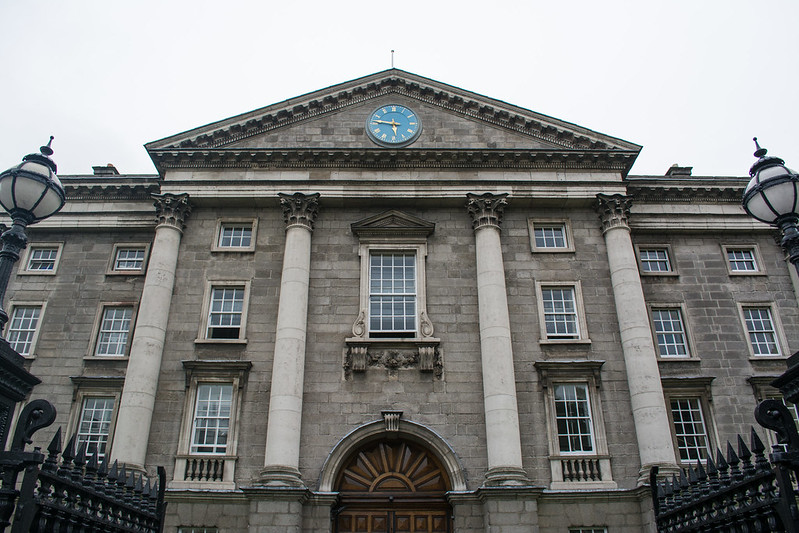When the coronavirus pandemic forced me to depart Dublin for my native United States, I was heartbroken. It hadn’t taken me long after arriving at Trinity to pursue a master’s degree, in the Autumn of 2019, to fall in love with the country from which my ancestors had come. The nightlife, culture and history were enough to draw me in almost instantly but it helped that Ireland had what I considered to be a highly competent government. My own country was going to hell at the hands of a leader who I considered to be an unstable, fear-mongering populist. Even as the pandemic swept across the globe, I was impressed by how well the Irish government handled it, particularly when compared to my country’s abysmal response.
When my plane touched down in Dublin in early September of 2020, I was thrilled to be back. That feeling didn’t last long. Just after moving into my new flat, I quickly discovered that many neighbourhood bars were shuttered. Adorning these sad-looking monuments to the frightening economic circumstances were brightly coloured signs that began with three bold words “Abandoned By Government.”
To someone who has studied America’s political and economic history, those words are frightening. They call to mind images of angry working people waging war against the elected officials. When I first arrived in Ireland, many people asked me how my country managed to elect Donald Trump. In a nutshell, the answer is that outside our sprawling cities known to Europeans, we have rural communities packed with working people who have spent decades being forced to stand by and watch as both political parties ignore their caries for wages that keep pace with inflation and affordable healthcare.
While corporations and members of the economic one per cent have used their checkbooks to purchase political influence, the working men and women who actually keep our economy moving are seeing the stable life that their parents enjoyed slip away more and more with each decade and each administration. In his 2011 book Aftershock, economist Robert Reich predicted that the cultural and economic plight that was overtaking most of middle and rural America would pave the way for a leader who didn’t represent the people’s best interests but promises to “shake up” the political scene.
When my plane touched down in Dublin in early September of 2020, I was thrilled to be back. That feeling didn’t last long
The sinister reality in which we are now living could have been avoided if America’s workforce didn’t feel that their government had abandoned them and therefore they had nothing to lose by electing a leader who was different in the worst ways possible.
As the Irish government’s level-five restrictions take hold of the local economy, the bars and pubs that are the city’s lifeblood are forced either to adjust by significantly reducing their production and service or to close their doors for at least six weeks. For the small businesses that took significant losses this past summer, the prospects of taking a further loss through the autumn season could mean closing their doors for good. Once that happens, the hard working people who’ve lost their livelihood will be looking for someone to blame and craving a change in government. When that epidemic overtook the United States, we saw a populist political outsider stride right into the White House and to this day, the rest of the world is paying for it.
These consequences of letting significant populations feel forgotten yield significant political consequences down the road and when they do, it is often the young people who pay the price – specifically the students and recent graduates who are poised to enter an already competitive job market. For many, employment prospects were grim enough before a global pandemic changed everything but in the wake of the catastrophic job loss that it has spawned, the next generation of leaders, workers, and innovators is facing a future even more grim with uncertainty.
These consequences of letting significant populations feel forgotten yield significant political consequences down the road and when they do, it is often the young people who pay the price
Even if America successfully votes Trump out in November, it will take far more than four years to repair the damage done to its economy by the Trump administration’s policies. This is the reality for America but it doesn’t have to be for Ireland. I understand that these unprecedented circumstances pose a significant challenge to any government but Ireland’s leaders need to take action to ensure that the working people who power their city know that they are not forgotten.
Ireland’s own Caitríona Perry did an excellent job chronicling the struggle of the white working-class Americans who put Trump in the White House in her 2017 book In America: Tales from Trump Country. I hope she doesn’t have to turn her efforts to her own country.
I am already seeing a shocking number of Irish citizens retweeting Trump on lockdown-related matters. This is deeply concerning. Ireland’s government needs to consider the ways in which the decisions they make in the near future will affect the citizens and workers of tomorrow. There is a reason that students such as myself chose to travel across an ocean to seek opportunities.







